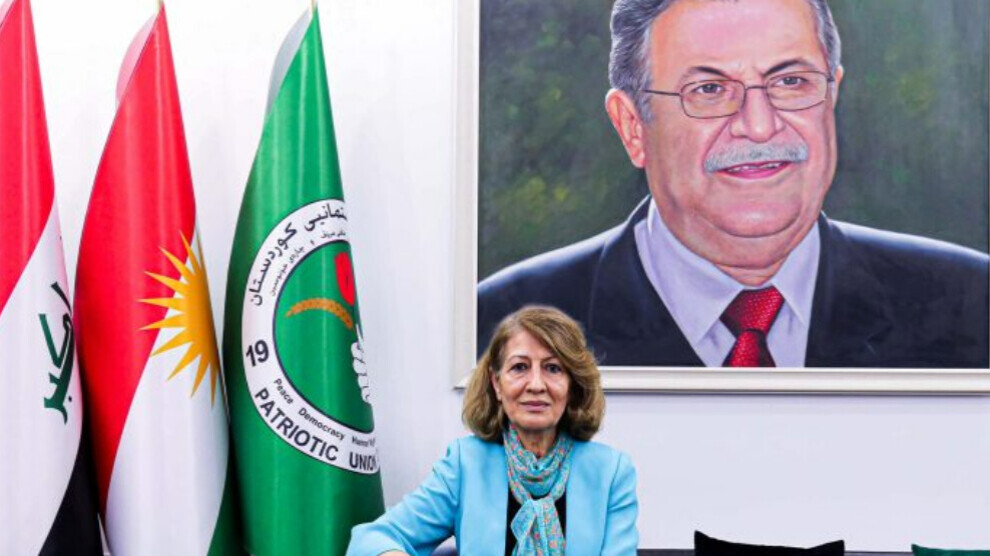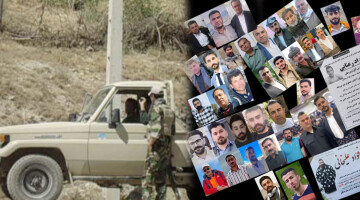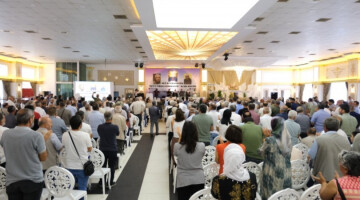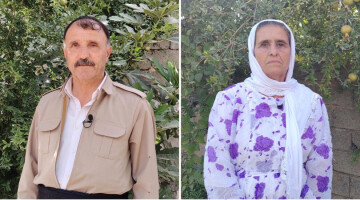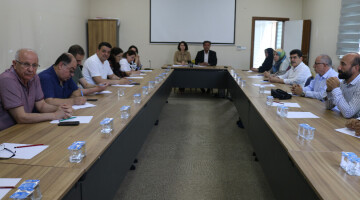An international workshop on the effects of the Treaty of Lausanne took place in the northern Syrian city of Hesekê on 6-7 July. The workshop organized by the Rojava Centre for Strategic Studies (NRLS) was attended by over 150 activists, lawyers, politicians and researchers from Europe and the Middle East, as well as representatives from North-East Syria. The government of the Kurdistan Region of Iraq (KRI), dominated by the Kurdistan Democratic Party (KDP), refused to allow the guests to cross the border to attend the workshop.
Shanaz Ibrahim Ahmed, politburo member of the Patriotic Union of Kurdistan (PUK), criticised the government of the Kurdistan Region of Iraq (KRI) for closing the border crossing into the Autonomous Region of Northern and Eastern Syria. The PUK politician said that many people from southern Kurdistan (northern Iraq) were prevented from attending the workshop as a result. "The government has a historical and ethical responsibility for Kurdistan. Instead of preventing people from travelling to the event marking the centenary of the Treaty of Lausanne, the government itself should have organised numerous seminars and conferences on the topic in Hewlêr [Erbil]," Ahmed said and criticized the Kurdistan regional government for not acting with responsibility for the Kurds and Kurdistan.
"Considering the pain suffered by the Kurdish people, the government of the Kurdistan Region bears the greatest responsibility," said Shanaz Ibrahim Ahmed and continued: "It is a disgrace that the government does not even allow a truck with baby milk to cross the border. It does nothing for national unity and denies support to its own brothers and sisters. Instead of building relations with those who fight for the Kurdish cause, the government wants to create an atmosphere that makes these people dependent on itself."
The Semalka (Faysh Khabur, Kr: Pêşxabûr) crossing point on the Iraqi-Syrian border was closed to passenger and commercial traffic by the KRI in May. The inner-Kurdish border crossing point connects southern Kurdistan with Rojava and the autonomous region of northern and eastern Syria. In June, the border was reopened on a daily basis for a limited group of people, such as humanitarian aid organisations and diplomats. The last prolonged closure was for about six weeks in the winter of 2021/2022. Before that, the KDP had closed the gate between South and West Kurdistan several times on Turkish orders. With such blockades, the Turkish state tries to isolate Rojava and destabilise the self-governed areas. The KDP, dominated by the Barzani clan, has vassal status in Ankara.

